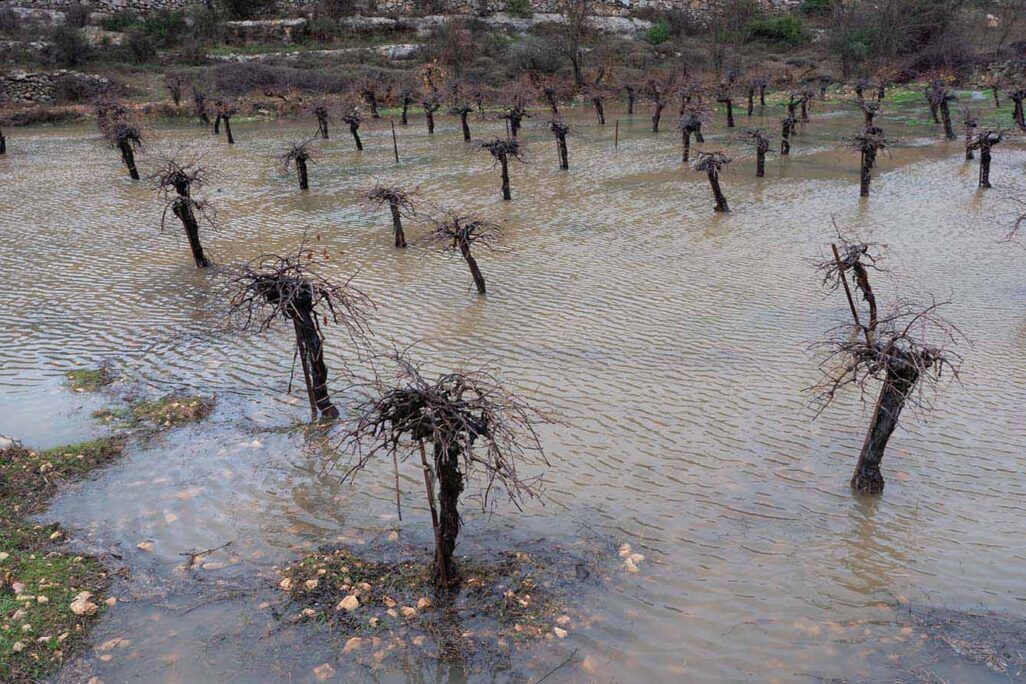
2020 saw a significant spike in damage to crops, further destabilizing an already-weakened agricultural sector. This year alone, Israeli farmers experienced an 8% increase in damage to agriculture produce due to weather. Kanat, an insurance fund run jointly by the government and a farmers’ association, reported that it would pay a total of 300 million NIS in damages to farmers this year, compared to 277 million NIS last year. In the past year, Israeli’s agriculture has been impacted by trade and border closures due to the pandemic, only reaffirming the need for a stable and independent Israeli food supply.
A statement released by Kanat claims that this data is part of a long-term trend. In the past five years, there has been a 45% jump in the amount of weather-related damage to agriculture, compared to the previous five years. This crisis, along with food insecurity brought about by disruptions in labor and production due to the pandemic, magnify the importance of agriculture’s stability.
"No industry can handle such large-scale damage," said Shmulik Turgeman, Kanat's CEO.

“Since the beginning of the year, we have witnessed the coronavirus crisis, which has caused countries to close their borders and worry first and foremost about their own residents. This is happening again as the British mutation spreads,” he continued. “Fear is already rising that there will be food shortages. At the same time, we continue to witness the extreme effects of global warming and dramatic climate change, as reflected in the extent and type of damage that farmers experienced this year."
Turgeman emphasizes that he believes that Israeli agriculture is able to meet the needs of the state, and provide fresh and quality produce at reasonable prices. But, he says, bringing agriculture to the required scale requires large-scale investment on the part of the government.
"If the state wants to have independence over its food supply, it must reduce the economic risk that farmers take. Israel must subsidize farmers to the level customary in the United States and European countries,” said Turgeman. “Support at that level has been proven to be the most effective and correct way to support local agriculture.”
“Without doing so, farmers will not be able to increase risk and thus won’t be able to increase productivity,” he explained “We will continue to witness price volatility, periods of shortage, and dependence on other countries that will provide fresh produce to Israeli residents, for all that that implies."
Kanat was originally established to provide insurance to farmers against weather damage. As winters shorten and become more turbulent, the need for support is increasing.
In the past year, the company's damage assessors handled about 14,000 reports of damage to agricultural crops, a jump of about 50% in the volume of damage reports compared to 2019. Most of the inquiries, about 6,500 reports, came from farmers in the north of the country. Kanat received about 4,000 reports from the south of Israel, and about 3,500 reports from central Israel.
2020 was a particularly difficult year for Israeli farmers. They faced a stormy winter that caused flood and hail damage worth 33 million NIS to the agricultural plant industry alone. There was also a surge in heat damage compensation after a harsh summer. Kanat will pay farmers 54 million NIS, compared to only 10 million NIS the year before.
The total amount of rainfall in Israel is declining, as is the number of rainy days per year. The result is shorter and much more powerful rain events. The Ministry of Environmental Protection also reports that heat waves have become more frequent.
According to Kanat, the largest amount of damage in the past year was caused to avocado crops (about 37 million NIS) and fruit crops, especially apples, mangos, and edible grapes (about 76 million NIS). Vegetable crops also experienced serious damage. All together, Kanat will pay about 71 million NIS to farmers for damaged potatoes, tomatoes, onions and watermelons. Significant damage was also caused to citrus crops, vineyards, olives, and flowers.
Farmers raising livestock also experienced setbacks. Kanat compensated poultry farms 22 million NIS, cattle farms 19 million NIS, and fish farmers about 10 million NIS last year.






